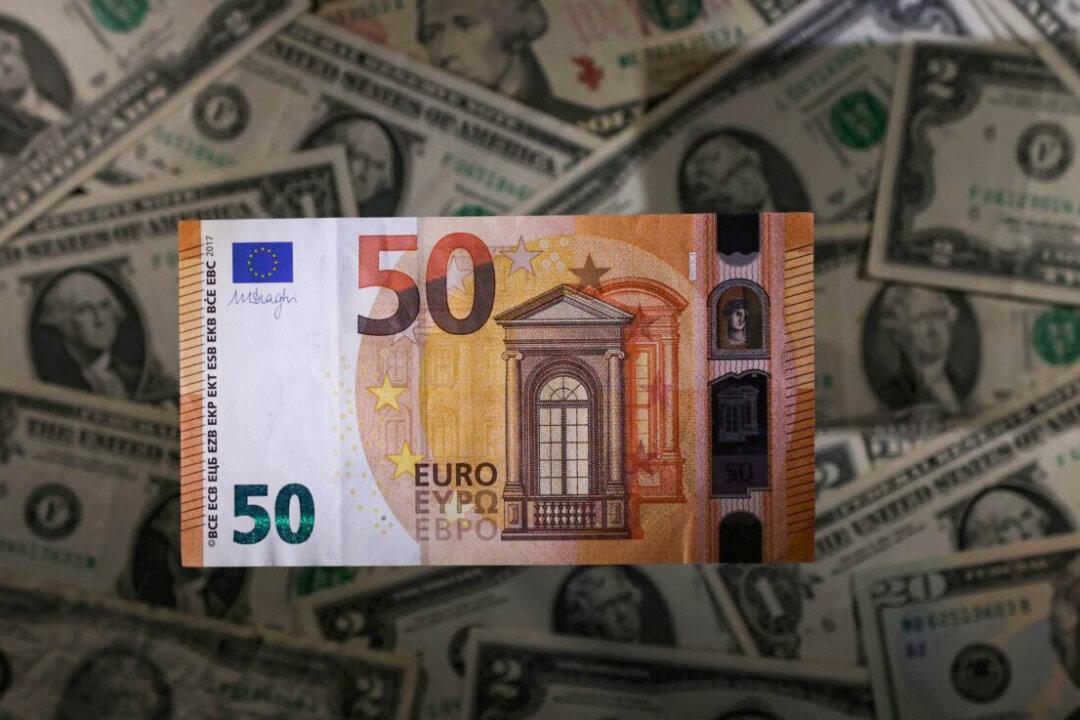LONDON—The euro gave up post-French election gains on Tuesday and fell against the strengthening dollar, bolstered by high bond yields ahead of U.S. inflation data expected to reinforce bets on aggressive monetary tightening.
The data for March, due at 1230 GMT, is expected to show the biggest monthly rise in consumer prices in 16-1/2 years, according to a Reuters poll of economists, supporting bets for an aggressive policy response from the Federal Reserve.





